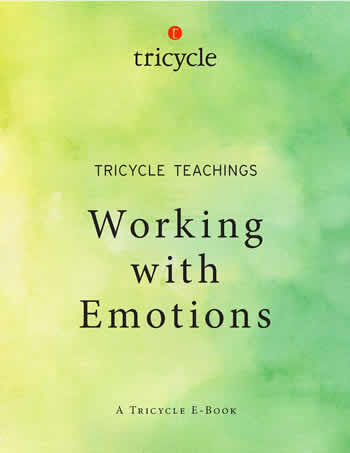TAMING DESTRUCTIVE EMTIONS
In your book, Destructive Emotions, you write that "recognizing and transforming destructive emotions is the heart of spiritual practice." Can you tell us what you mean by "destructive emotions"? There are two perspectives, one from the East and the other from the West. The Western view of destructive emotions—the modern philosophical and scientific view—is that they are emotions that result in harm to one- self or to others. And "harm" here is meant in the most obvious sense: physical harm, affective harm, social harm. The view from the East is subtler. The Buddhist view, as it emerged in conversations with the Dalai Lama at the Mind and Life conference in March 2000, is that destructive emotions are those that disturb one's internal equilibrium, while healthy ones foster equilibrium of the mind. In this sense, "harmful" emotions are essentially what Buddhists call the kleshas, or defilements, which are enumerated in the classical texts. The kleshas operate on a gross lev- el—in the form of hatred, craving, jealousy, and so on—and also more subtly, mingling with our thoughts to disturb equilibrium internally.
Xin mời các bạn click vào đây để được đọc sách:

 Xin email tới:
Xin email tới: 